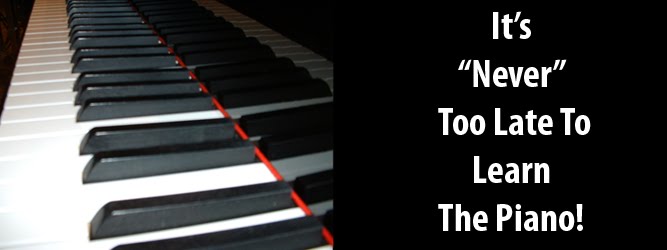I continue to play Bach and revisited and relearnt the Fugue in C Minor from WTC 1. The constant posting from the irrepressible Shirley Kirsten has opened my eyes to a couple of the more accessible movements from the French Suite V so I have been working on the Allemande and as of today started looking at the Courante too.
I have composed two new piano pieces Friday's Beckoning Seas and Zep. I have a few others on the go and have also completed a couple of arrangements for different instrumentations. I have continued to work on my improvising skills using my own pieces in the main. Those skills have improved quite a bit as my technical competence has been pushed along because of the major goal I set myself for this year which was to study 12 of Beethoven's Piano Sonatas.
I have been using an easiest to hardest list, that I secured courtesy of Phlebus on the Piano World Forum, and it has worked very well for me.
1 - Op 49#2
2 - Op 49#1
3 - Op 14#1
4 - Op 2#1
5 - Op 79
6 - Op 10#1
7 - Op 14#2
8 - Op 10#2
9 - Op 26
10 - Op 13 "Pathetique"
11 - Op 54
12 - Op 27#2 "Moonlight"3 - Op 14#1
4 - Op 2#1
5 - Op 79
6 - Op 10#1
7 - Op 14#2
8 - Op 10#2
9 - Op 26
10 - Op 13 "Pathetique"
11 - Op 54
Why, you ask? Well as a late beginner, having started this journey in my late 50s, I figured that if I can get some sort of handle on all 32 piano sonatas it is likely to stand me in good stead for pretty well anything I am likely to want to explore in the repertoire. Apart from gaining more technical skills my sight reading has also dramatically improved allowing me to more easily explore other repertoire. More than useful. Could I play you a competent performance of any of the sonatas? Well no, not at this point in time, as my procedure is to get a grasp of six at a time before going back and revisiting them all. So, having just completed the second six, I have started revisiting the first six for the third time. Once I have completed that process, I will move on to the new group of six for a second revisit. Each time they are revisited more of the technical challenges fall away and I get much closer to being able to play them. However, that is not my goal. I am challenging myself to explore them to gain more technical skill for composition and improvising for performance. So I am more likely to choose one or other to learn for a performance if that is something I decide I want to do at some point.
So what has the been the main technical challenge I have faced exploring the sonatas? Arpeggios, arpeggios and arpeggios! Both Shirley Kirsten and Graham Fitch have provided excellent technical information and routines that I have taken full use of to assist gaining a better understanding of arpeggio playing.
I would like to mention that the Pianist and International Piano magazines are tremendously inspirational for a self-directed student such as myself, with the former, in particular, providing a terrific entree to the repertoire with the number of pieces to play that they include in each issue.
Well, that is it from me for another year and it is straight in to the next twelve sonatas on the list.
13 - Op 28 "Pastoral"
14 - Op 31#3
15 - Op 78
16 - Op 31#2 "Tempest"
17 - Op. 22
18 - Op 2#3
19 - Op 2#2
20 - Op 90
21 - Op 31#1
22 - Op 27#1
23 - Op 10#3
24 - Op 7
Bring it on!


No comments:
Post a Comment